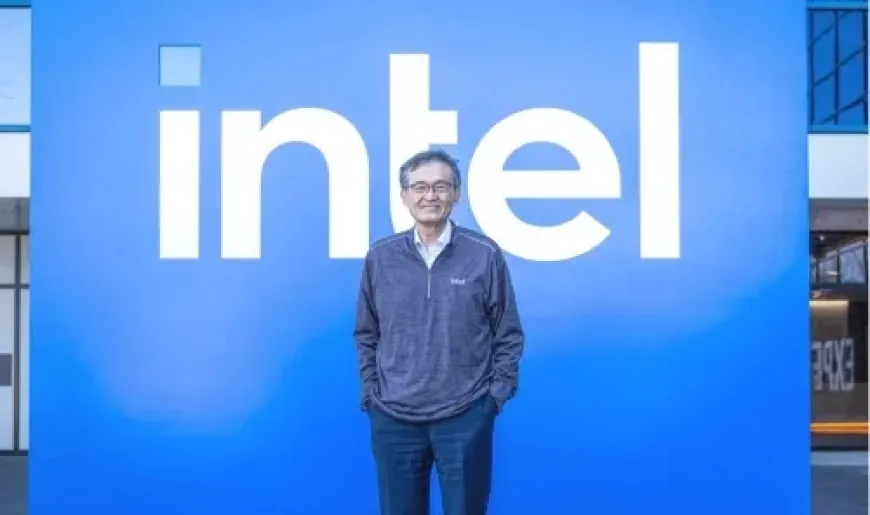Trump Demands Intel CEO Resign Over China Ties
President Trump calls for Intel CEO Lip-Bu Tan to step down amid scrutiny over his financial links to Chinese-backed firms.

WASHINGTON, D.C. — President Donald Trump has publicly called for the immediate resignation of Intel CEO Lip-Bu Tan, citing deep concerns over Tan’s long-standing financial links to Chinese government-backed ventures. The move comes amid growing unease in the administration over the strategic risks posed by U.S. semiconductor giants entangled with foreign influence.
In a post Thursday morning on Truth Social, Trump did not mince words:
“The CEO of INTEL is highly CONFLICTED and must resign, immediately. There is no other solution to this problem. Thank you for your attention to this problem!”
The comments came just months after Tan was appointed to lead the chipmaker in March, following the exit of Pat Gelsinger. The leadership change was initially applauded on Wall Street, with Intel shares jumping as much as 15% on the day of the announcement. However, following Trump’s remarks, the stock lost over 3% in intraday trading.
Intel CEO Faces Scrutiny Over China Investments
Tan, a veteran of the semiconductor industry, also leads Walden International, a venture capital firm with a long history of investing in Chinese tech startups — including companies operating in sensitive sectors like artificial intelligence and chip design. According to public records from Chinese corporate registries, Walden remains financially linked to at least 20 firms co-funded by Chinese state-owned entities or government-controlled investment funds.
While those investments were made before Tan took the helm at Intel, federal officials and lawmakers are questioning whether his ongoing leadership poses a conflict of interest — especially as Intel benefits from a nearly $8 billion federal grant under the CHIPS and Science Act.
Congressional Scrutiny Escalates
On Wednesday, Senator Tom Cotton sent a formal letter to Intel’s board of directors questioning whether the company can uphold its obligations under the CHIPS Act with Tan at the helm. The letter referenced the scale of Tan’s historical investments in Beijing-linked companies and raised national security concerns.
“Intel is required to be a responsible steward of American taxpayer dollars and to comply with applicable security regulations,” Cotton wrote. “Mr. Tan's associations raise questions about Intel’s ability to fulfill these obligations.”
The Trump administration has not issued any formal directive to Intel, but sources familiar with the matter say senior officials are reviewing legal pathways for ensuring that federal grants are not placed at risk due to foreign entanglements at the leadership level.
Strategic Stakes Behind Trump’s Unfiltered Message
Intel’s role as a linchpin in America’s chip manufacturing ambitions makes the company a national security priority. With the U.S.–China tech race intensifying, the administration has made it clear it will scrutinize any perceived vulnerabilities — particularly when taxpayer dollars are involved.
President Trump’s demand for Tan’s resignation is not just a political broadside but a signal to the broader tech industry: financial ties to geopolitical rivals will not be tolerated in firms receiving federal subsidies. Administration insiders say that more companies could come under review if similar connections are uncovered.
Tan and Intel have yet to issue a response to either Trump’s public demand or Senator Cotton’s letter. There has been no indication that the board is currently considering any leadership changes.
Intel CEO’s China Links Put CHIPS Act Funding at Risk
Intel’s plan to expand chip manufacturing in the U.S. is now at risk of being derailed, just months after appointing Lip-Bu Tan as CEO. The company has pitched multi-billion-dollar projects in Ohio and Arizona as part of its effort to secure a sizable slice of CHIPS Act subsidies. But Tan’s past investments in Chinese tech firms — flagged in a Senate letter this week — are drawing renewed scrutiny in Washington.
At stake is more than Intel’s public image. The CHIPS Act requires strict compliance with national security provisions, and Tan’s history with Walden International — a firm tied to multiple China-linked ventures — could complicate Intel’s path to receiving federal support. President Trump’s call for Tan to “resign immediately” underscores how quickly political backlash is escalating.
Intel’s board has not issued a statement, but investors and federal officials are watching closely. Whether Tan stays or steps down, the company is now navigating more than a business challenge — it’s dealing with a political one that could shape the future of U.S. semiconductor leadership.
Also Read: Alexandr Wang Steps Down as Scale AI CEO After Meta Takes 49% Stake in $14.3 Billion Deal































































